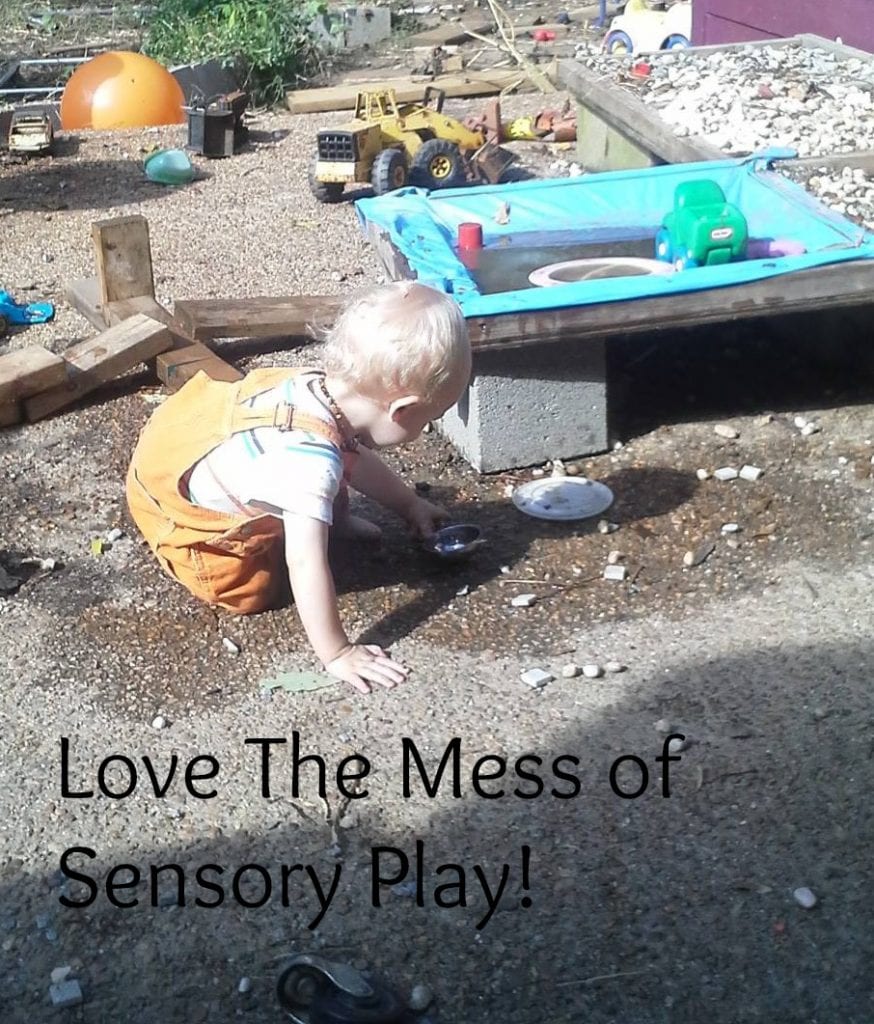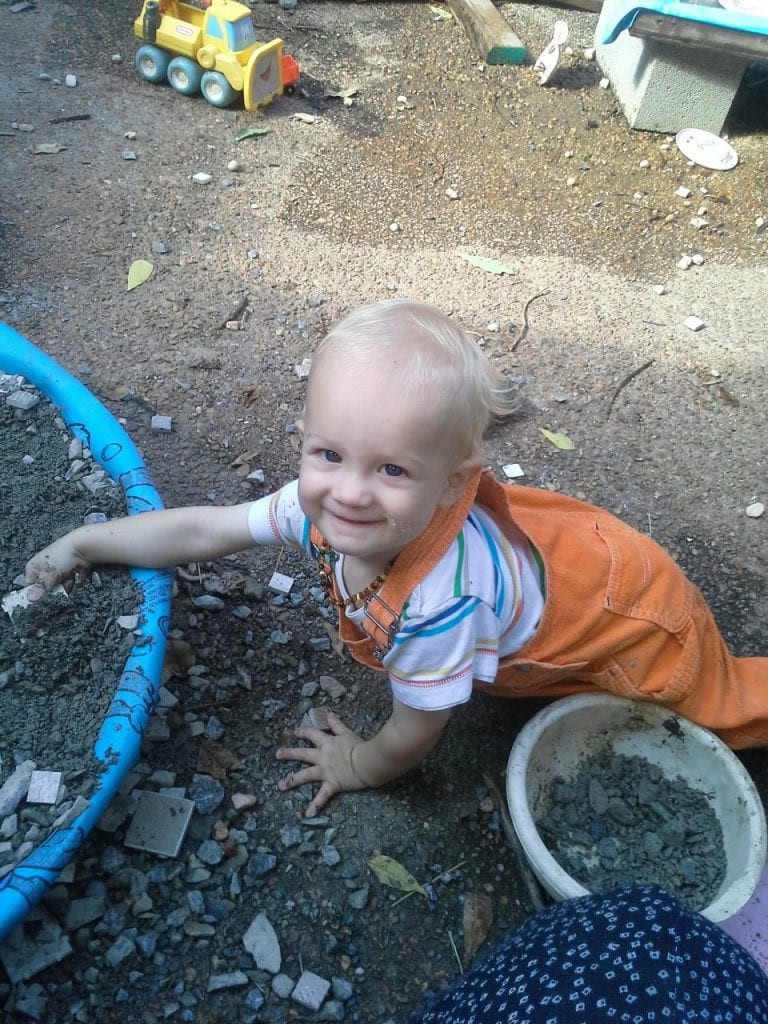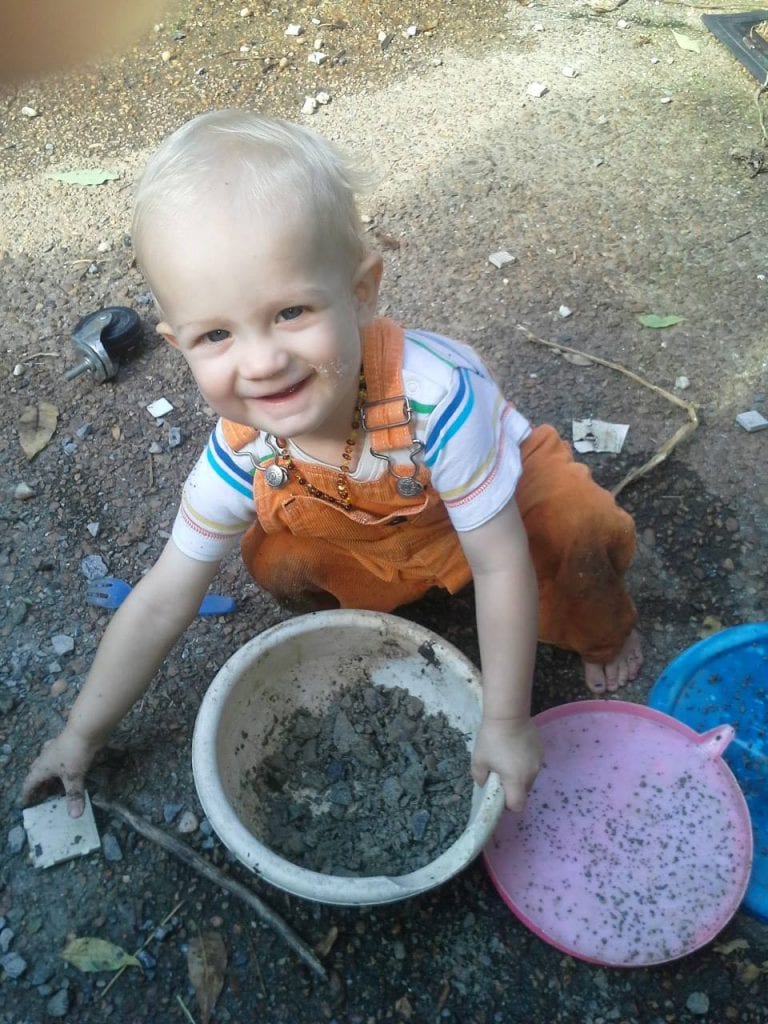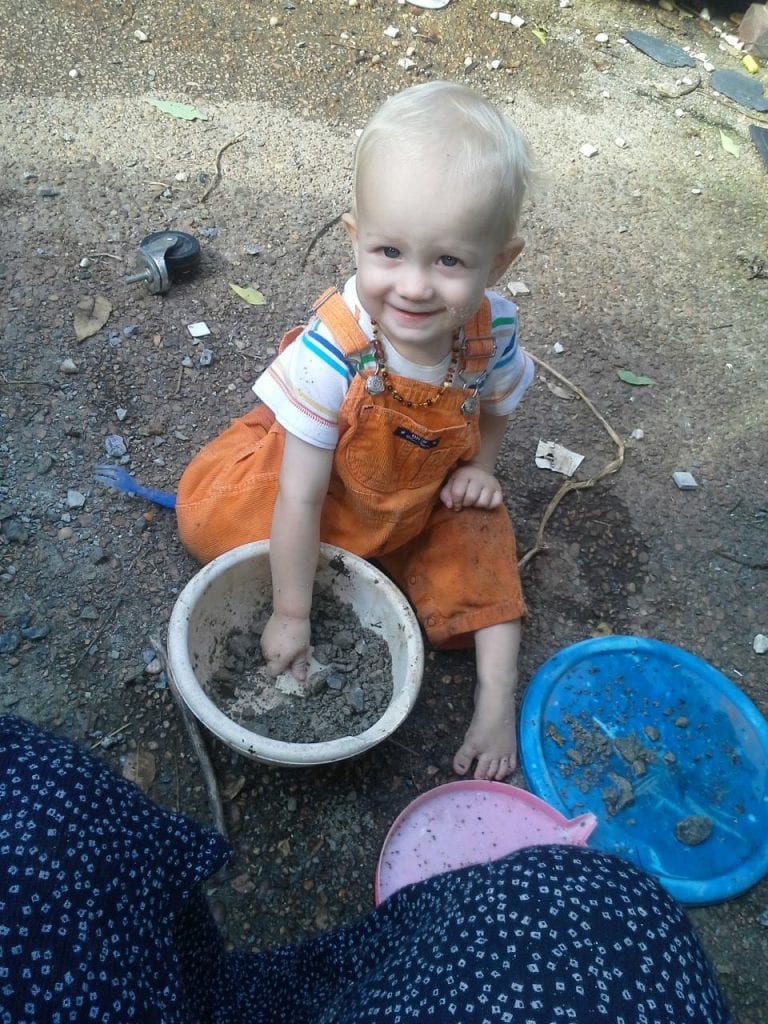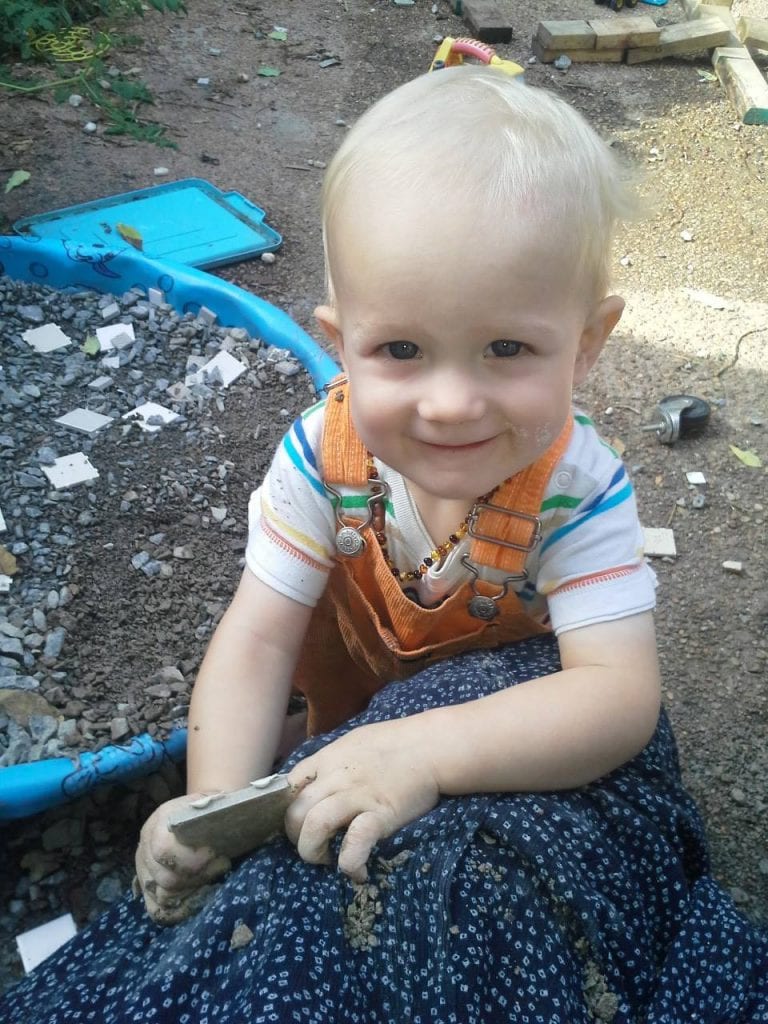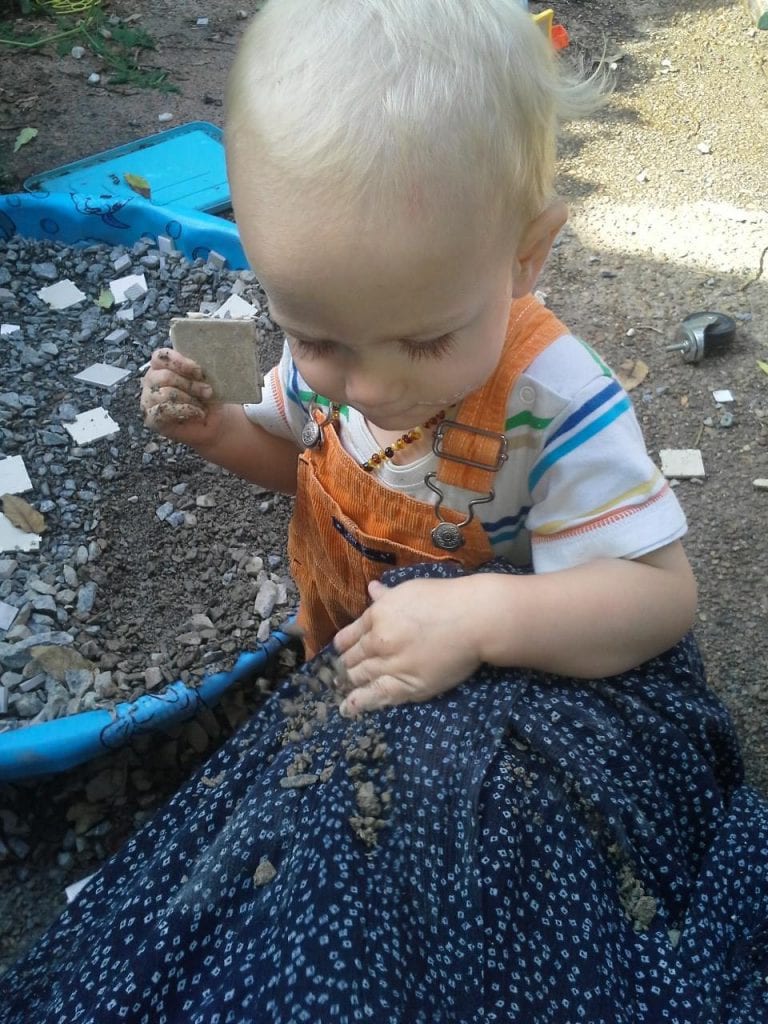The other day Jack and I were sitting on our back patio. I was reading and he was exploring the sand box and experimenting to see how much sand he could pick up with a piece of tile. He added some water from the water table to his pile of sand, then scooped up the wet sand and dumped it in his lap. That was interesting- especially the way it felt when he brushed it off his overalls. Would it feel the same if he dumped sand on Mama and brushed it off? Why not try it out? The next several minutes were spent transporting sand to my lap, dumping it on my knee, patting the pile flat then brushing it to the ground!
What a mess! And my dress was rayon which isn’t the easiest to wash.
Truth is though that play that engages the senses is very important. It teaches children about the natural world, it helps them to learn to reason, and it when it is essentially unstructured it gives them the opportunity to explore the results of mixing things that appear very unlike each other.
All very good, but as mothers and those responsible for keeping our homes clean and teaching our children cleanliness and neatness, how can we handle the attendant mess?
First of all I think we need to realize that for many of us messes are a stressor. That’s OK. We can deal with that with grace if we first acknowledge that we are likely to be stressed by muddy hands and clothes. We can allow unstructured messy play and teach our children to clean up afterwards. We can designate “play-clothes” and expect that those clothes will be stained with mud or “paint” made from chalk and water. The children don’t need to wear those clothes to the grocery store but they can be comfortable in them while building in the backyard.
Secondly we need to remind ourselves that children learn through play and that the “messes” are actually part of their becoming competent, thinking adults.
Here are just three of the many ways that sensory play helps our children learn.
Will the mess drive us nuts some days? Oh certainly, and there will be days when sensory play just won’t fit into the schedule. Those days should be rare though and we should never think of time spent engaged in sensory play as “making messes” or “wasting time”.

